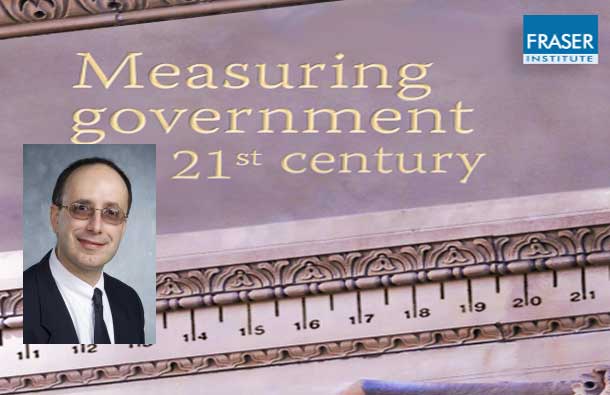
But don’t cry for the province; it has mainly itself to blame
THUNDER BAY – EDITORIAL – Ontarians have re-elected a government whose decade long reign dovetails with the lowest growth rate of provincial real per capita GDP in the Canadian federation. In the face of economic decline, Ontarians have come to fear change and opted for the status quo in the hope that things may get better if enough time goes by. Sadly, Ontario has embarked on the road to Argentina.
Despite Ontario’s mounting public debt, laggard economic performance, new status as a have not province, general lack of competitiveness, as well as a government marked by scandals and charges of corruption, the opposition parties were unable to convince the electorate of the need for change. In the face of such abundant fodder, this also represents a notable failure on the part of the opposition parties. Like Argentina, Ontario’s economic decline has spilled over to pervade its institutions with an inability to articulate and effect change.
In the early 20th century, Argentina was a successful export-led economy rooted in agricultural production – particularly beef. During the 20th century, Ontario became a successful export-led economy based particularly on its manufacturing sector. During its heyday, Argentina had one of the highest standards of living in the world and believed it was on the verge of becoming the next United States. Meanwhile, Ontario has grown accustomed to one of the highest standards of living in the world and taken its role as an economic cornerstone of the Canadian federation for granted.
The First World War and Great Depression shocked the Argentine export economy and the beef export industry never fully recovered. The result was poor economic policies over the next half-century that aimed to recapture a fading standard of living. Argentina was marked by large public sector debts and deficits, corruption, high inflation, and protectionism for uncompetitive sectors of the economy. Most importantly, there were entrenched economic interests that benefitted from poor government economic policies and a general inability to implement changes that would reverse the long-term decline of the Argentine economy. With a set of poor political institutions that included military coups, Argentina settled into a long-term decline punctuated by bouts of economic crisis and an inability to resolve its problems.
For Ontario, its problems began with an incomplete transition to the economic changes brought about by a more competitive world economy after 1990. Ontario’s economic development reached a crucial watershed in the wake of the economic boom of the 1980s that saw free trade with the United States, a shift away from the traditional east-west economic alignment, and the recession of the early 1990s. While the mid-1990s saw the onset of public sector restructuring and economic reforms, these petered out in the early 21st century with the return of more interventionist government economic policy that saw tax increases, increased public sector spending and a flawed industrial strategy based on green energy initiatives that became a factor in higher electricity prices. Economic productivity faltered and the 2009 tilt into recession was compounded by an appreciating Canadian dollar.
Ontarians have become used to ever-larger amounts of public spending fueled by growing public debt to compensate for faltering private sector productivity. This has created clients with a vested interest in more interventionist government. The recent election campaign saw promises of new public infrastructure spending, a new pension plan as well as overt political meddling by some traditionally circumspect public sector unions. While Ontario police unions do not have the heft of the Argentine military, their election activity is nevertheless yet another sign that Ontario may be changing for the worse.
In towns and cities across the province ravaged by manufacturing decline, the public sector has picked up the slack with public works construction projects, expanded government initiatives and their associated employment. Ontarians have convinced themselves that what is needed to reverse their malaise is more government spending fueled by debt and deficits, despite the evidence that the past decade of such policies have yet to turn the economy around. It is still early on in Ontario’s economic and fiscal troubles but another decade of economic policy ineptness could well make Ontario’s decline terminal.
Don’t cry for Ontario, it has mainly itself to blame.
Livio Di Matteo
Livio Di Matteo is Professor of Economics at Lakehead University, a Senior Fellow at the Fraser Institute and on the Research Advisory Board of the Northern Policy Institute.






